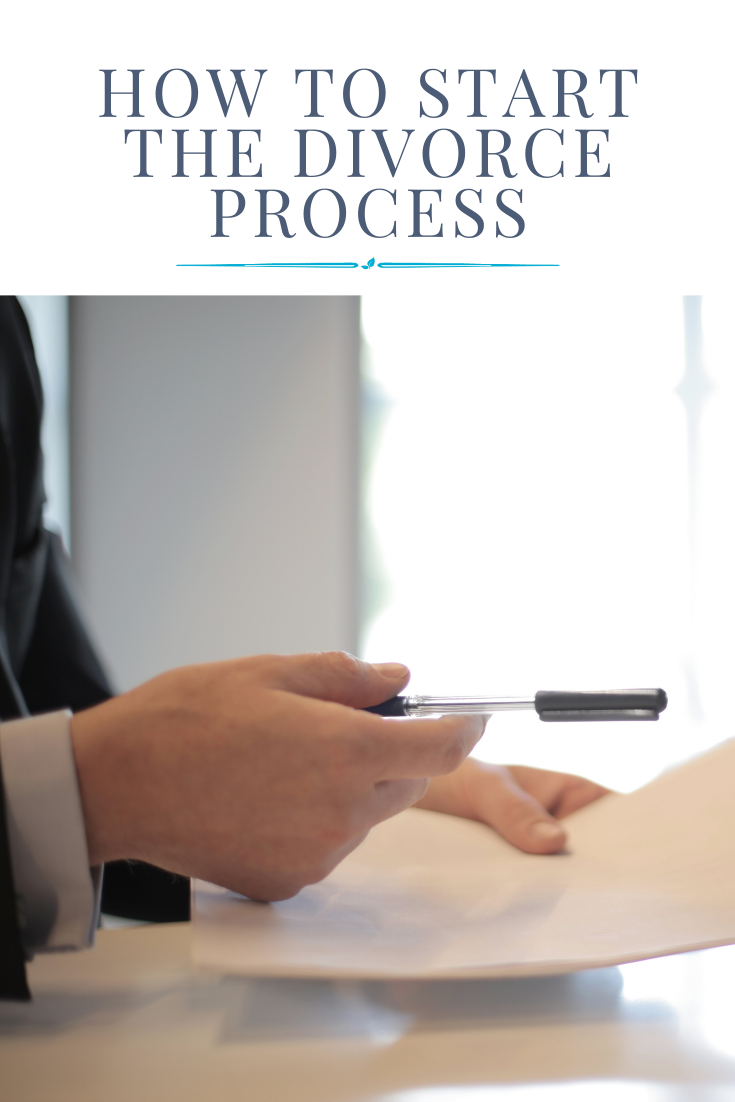Where do I even begin? I get this question a lot. The decision to end a marriage is seldom an easy one. Once the choice has been made, you may find yourself wondering what to do next or what to do first. While the specific laws governing a marital dissolution vary from state to state, the initial, customary steps of the process are fairly straightforward. Let’s proceed.

File a Divorce Petition
The very first step in the divorce process is to file the petition for divorce. This document initiates the divorce case and lets the Court know you request its assistance with a legal matter. The Petition is like a civil complaint and is usually accompanied by a summons. Typically the documentation you will complete includes forms which:
- Identify the parties involved, the date of the marriage, and the date you separated
- Describe how you meet the state’s residency requirements
- (If applicable) request court orders for custody, child support, spousal support, attorney’s fees, and property division, etc.
Your state may require additional documents or information at this time. An experienced divorce attorney in your jurisdiction can help guide you through these steps if you have questions or unique circumstances or can of course complete the forms for you after consultation. The petition in California is a surprisingly simple and straightforward document. Nonetheless, you will want to make sure your initial filing is 100% correct.
The petitioner will have to complete all of this initial paperwork and pay a filing fee. Check your local court system’s website for filing fee information.
Formally Serve Your Spouse
Once the paperwork has been filed, you are assigned a case number. The other party will be formally served in person or by substitute service if your state permits. If it is safe to do so, it’s often a good idea to make your spouse aware the divorce forms are en route. No one likes a nasty surprise.
In California, anyone over the age of 18 who is not a party to the case can serve divorce papers. Other states require a licensed process server to complete this part of the divorce. To avoid legal complications, it is best to use a professional to complete this step. Remember, you are not permitted to serve the forms yourself.
Response Time
Once properly served, your spouse will have a set amount of time to complete the paperwork that they are required to file and serve. If they do not complete and return their paperwork within the legal time limit, you could apply for a default judgment. This ensures that you will not have to wait indefinitely for your spouse to respond. If you anticipate this happening, you will want to make sure your petition is detailed and complete with the specific relief you seek.
Settle Out of Court
Many divorces do not go to trial given the expense and uncertainty of a litigated process, so odds are you will be able to negotiate a deal and settle out of court. If you have a valid prenuptial agreement, then most of your work is already done. If you are able to reach a settlement on your own, you can take advantage of the uncontested divorce procedure. If there are sticking points then mediation is an option to fine-tune and come to an acceptable compromise. Should that fail, counsel can often negotiate an out-of-court settlement for you and the stipulated Judgment can be submitted to the Court sans trial.
Go to Trial
If you cannot settle out of court, your divorce will be set for trial and decided in family court. A judge (and in some states, a jury) will render a decision on all aspects of your divorce from support to property division to attorney’s fees and costs.
Receive Divorce Decree
Once the waiting period designated by your state is over, the Court can issue a final decree or Judgment. This document makes your divorce official. The process is now complete. Keep paper and digital copies of this document and consider obtaining a certified copy from the Court.
Getting divorced can seem overwhelming, but starting the process should not be. An experienced family law attorney can help guide you through the process. For more information about what to expect when you start the divorce process, see our divorce preparation checklist.
